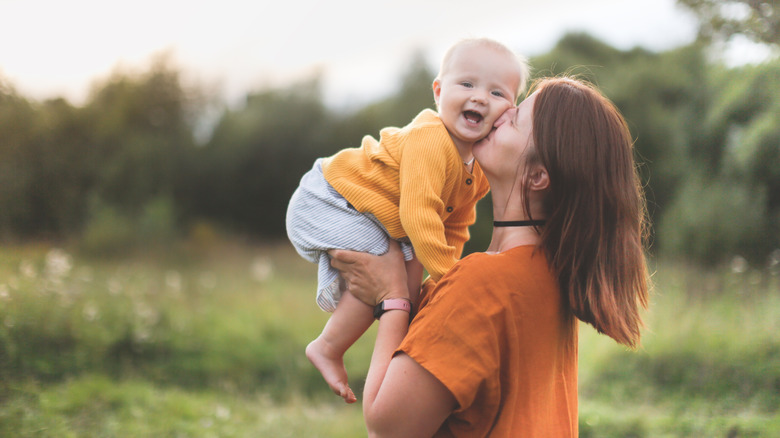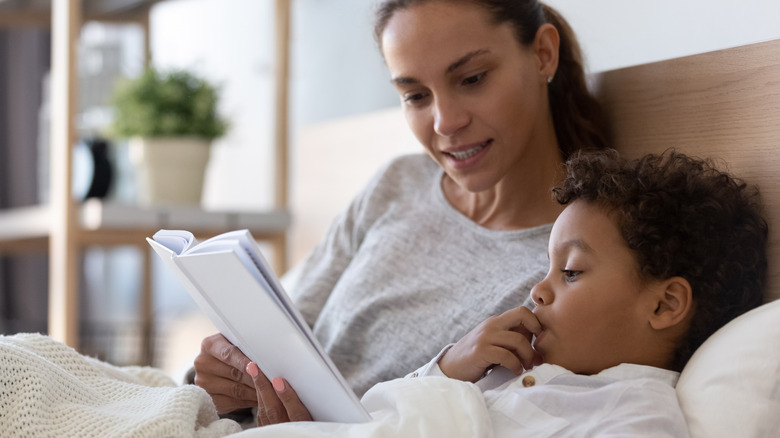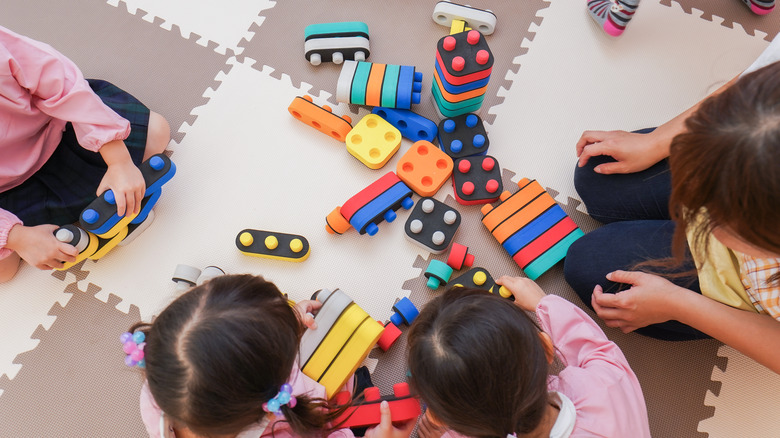What You Can Do To Help Your Pandemic Baby Reach Developmental Milestones
The COVID-19 pandemic lockdown left most of us rattled and with heavy hearts. The isolation and lack of social interaction was tough, but for babies born during the pandemic, this loss has had an even larger impact. In the first year of life, tiny humans are developing rapidly. Small daily interactions that seem somewhat insignificant, like saying hello to a neighbor or dining out at a restaurant, drive an important part in their early understanding of the world.
"It's interesting because a lot of these babies were at home and not seeing many people leave, meaning there wouldn't have been anybody to say 'bye-bye' to," Susan Byrne, a pediatric neurologist at the Royal Colleges of Surgeons in Ireland, told The Guardian. "Babies also tend to point when they see new things that they want, but if they weren't going outside, they would have already known about everything in their environments."
But as we all know, humans are resilient and there are several steps parents can take to help their little ones make up for lost time and meet some of the milestones they may not have had a chance to experience.
Try initiating conversations and reading books with your pandemic baby
Language and vocabulary are key in meeting developmental milestones and thriving socially, according to The Conversation. If a baby born in the pandemic years hasn't had enough exposure to situations that encourage language, it can be a big roadblock.
One useful tool is to always respond to your child's observations of the world and then add details to what the child has said. This tends to come naturally to most parents, but with the stress of the pandemic and limited outings, it could be stunted. Getting in on your child's imaginative play can also work wonders for language development. If they enjoy creating a scene with toy dinosaurs, sit down beside them and give that T-rex a name and a monologue. As always, warm and gentle talk is going to get the best results — which you'll also want to use during story time.
It's never too early to begin reading to your child and chances are you even did it when they were in the womb. Reading every night before bed is monumental in vocabulary development. Be sure to ask your child some engaging questions about the book you're reading. They should feel involved and will likely have more confidence when it comes time to read on their own.
Slowly re-engaging in social activity is important for pandemic babies
It may have been tempting to go all-in with the playgroups, camps, and classes once the pandemic precautions were lifted, but just as we know each child is unique, so is their learning style and emotional capacity for change. According to The Leap Years, allowing the child to set the pace for social exposure is the best way to ensure success — starting with basic at-home routines that were in place prior to the pandemic. This will help everyone adjust to the immersion back into the classroom and daycare environment.
A lot of kids who were home during those developmentally crucial years may need some extra guidance in learning to read social cues, making friends, and possibly coping with anxiety. Luckily, their peers are probably in the same boat. It may be necessary to remind your child to introduce themselves to a new friend at the playground or show them how to share with others — a skill that is already easier said than done for toddlers and preschool aged children. If you still have concerns about your child's adjustment to post-lockdown life, be sure to check-in with your pediatrician.


